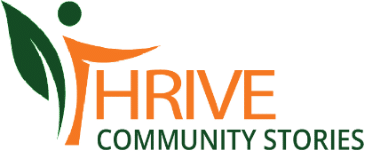By Jewel Connelly, Communications Specialist
 “We learn in rows, but we grow in circles.” From classroom discussions to our very own National Conference, this timeless quote rings true, emphasizing the tremendous value of engaging with and learning from the experiences of those around us. Everyone desires to be seen, heard, and fully understood, and the more intimate setting of a targeted group often allows people the freedom of sharing openly in discussion. A popular staple of the National Conference lineup, roundtable sessions are volunteer-facilitated groups designed for community members to ask questions, gain knowledge, receive support, and connect with peers who have shared experiences.
“We learn in rows, but we grow in circles.” From classroom discussions to our very own National Conference, this timeless quote rings true, emphasizing the tremendous value of engaging with and learning from the experiences of those around us. Everyone desires to be seen, heard, and fully understood, and the more intimate setting of a targeted group often allows people the freedom of sharing openly in discussion. A popular staple of the National Conference lineup, roundtable sessions are volunteer-facilitated groups designed for community members to ask questions, gain knowledge, receive support, and connect with peers who have shared experiences.
Roundtables are all about intentionally creating space for people with similar amputations and identities to come together in the same room—some for the first time. For those who have never met another amputee who looks like them, the opportunity to see your amputation mirrored in someone else is a powerful experience. “The visual is so, so important,” said Vala Hallgrimson, who will facilitate an all-new partial amputation roundtable. “Someone can have the same amputation as you, but everyone has different experiences. The roundtable allows you to see how someone else is handling some of the things you may be going through. And, if you want to talk to them in more detail, you can hopefully catch them before they leave the room.”
On opening day, Wednesday, Aug. 2, 10 amputation level-specific roundtables will be held simultaneously to kick off the breakout sessions from 9 a.m. to 11 a.m. Attendees can join a session based on the amputation type that applies to them: below knee, above knee, hemi/hip, upper limb, wheelchair, bilateral above knee, bilateral below knee, complex, partial hand/fingers/partial foot/toes, or limb difference. Every roundtable session will be moderated by a facilitator who also has that level of limb loss and will provide a starting point for conversation.
Involved with the Amputee Coalition since 2018, Certified Peer Visitor and lead advocate Leslie Green has seen firsthand how this format serves as the “great equalizer,” empowering participants to speak up. “What I love about a roundtable is that it really gives each participant equal standing in the discussion,” she emphasized. “It allows people to contribute their perspectives and ideas not only freely but fully. Nobody is given more weight because they’re an expert.” As each person shares their individual experience, conversations deepen as more layers are exposed. “It allows for bursts of discussion, but as different people chime in it can change the flavor of the conversation but not the focus.”
 This year Dave Paschold has volunteered to facilitate two roundtables, below knee and the men’s sessions. “The roundtables allow people to voice their own concerns and hear other people’s frustrations,” Paschold said. “They learn that they are not alone and can voice their issues in a safe environment.” The challenges that an upper-limb amputee faces are different than a bilateral above-knee amputee’s, so this is the opportunity for participants to have honest conversations about their unique needs. Topics range from body image to traveling with a disability and anything in between.
This year Dave Paschold has volunteered to facilitate two roundtables, below knee and the men’s sessions. “The roundtables allow people to voice their own concerns and hear other people’s frustrations,” Paschold said. “They learn that they are not alone and can voice their issues in a safe environment.” The challenges that an upper-limb amputee faces are different than a bilateral above-knee amputee’s, so this is the opportunity for participants to have honest conversations about their unique needs. Topics range from body image to traveling with a disability and anything in between.
Before the end of the conference, an additional nine roundtables will be held Saturday, Aug. 5, categorized by different demographics: women, men, young adult, LGBTQIA+, caregiver, Spanish speaker, BIPOC (Black, indigenous and people of color), veterans, and belonging. With a similar objective as the levels sessions, these identity-specific sessions are intended to provide a measure of familiarity and comfort for participants to discuss any topic with others, regardless of amputation type.
During the 2022 National Conference in Palm Desert, California, CPV Luis Ovando De Leon facilitated the first Spanish-speaking roundtable in the organization’s history. Out of that experience, he decided to address a need in the community and launched the Amputee Coalition’s first fully Spanish-speaking support group in January. Luis will return to facilitate that roundtable in Orlando.
“A benefit for amputees, especially first-timers to the conference, is the sense of inclusion [from] having a session in their own language or first language,” Ovando said. “Participation in this roundtable is similar to a support group where they can ask questions or share their stories.” In previous years, topics including struggles at work and sex and intimacy have been discussed, but the roundtables are meant to be an open forum welcoming any subject matter relevant to the group.
If you’ve ever wondered if other amputees experience the same challenges you do or how they’ve dealt with a particular issue, you’re in good company. Whatever you are experiencing, being surrounded by others with whom you share a commonality can be encouraging and validating. Although you may come into the circle as strangers, roundtable sessions are a powerful reminder that there is always someone out there who can relate.

